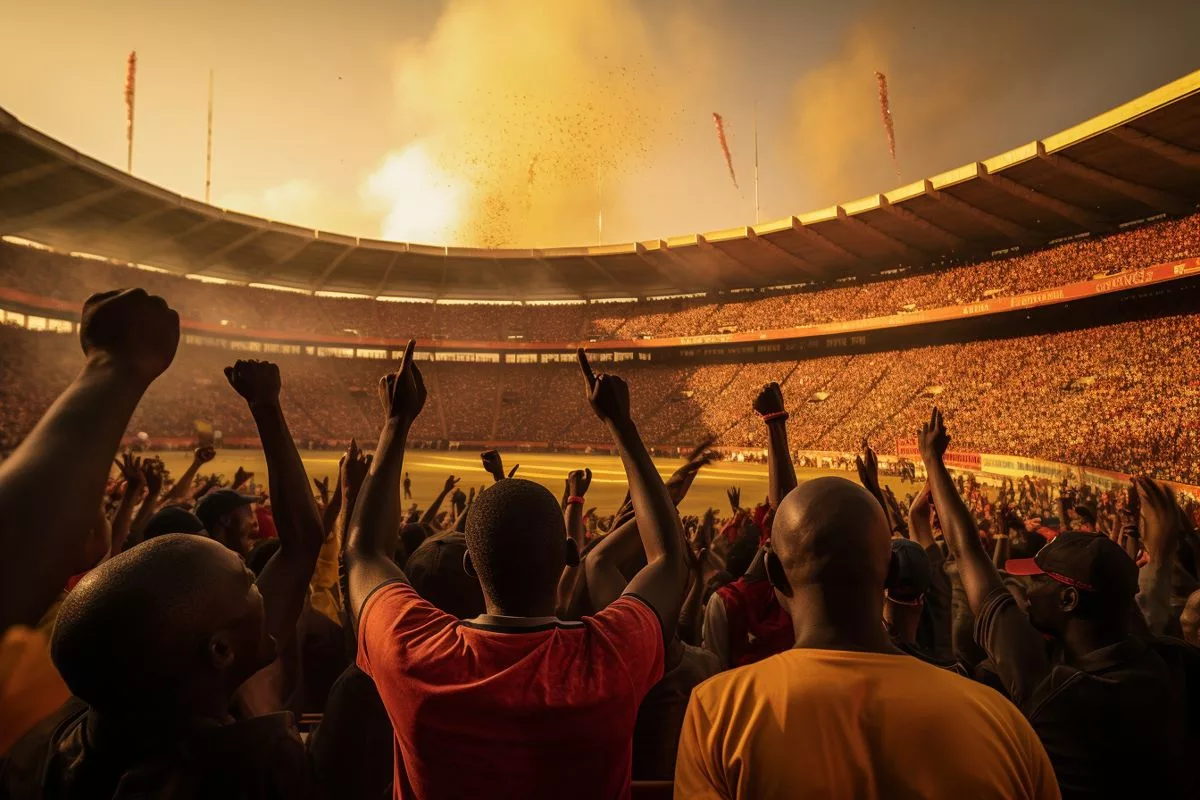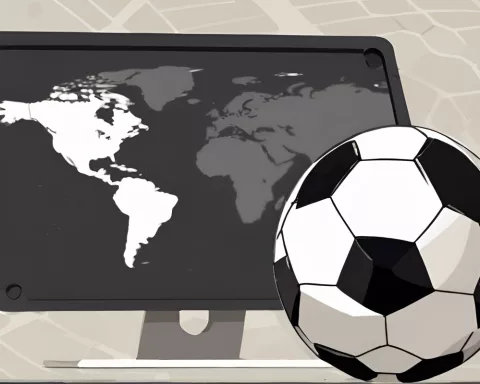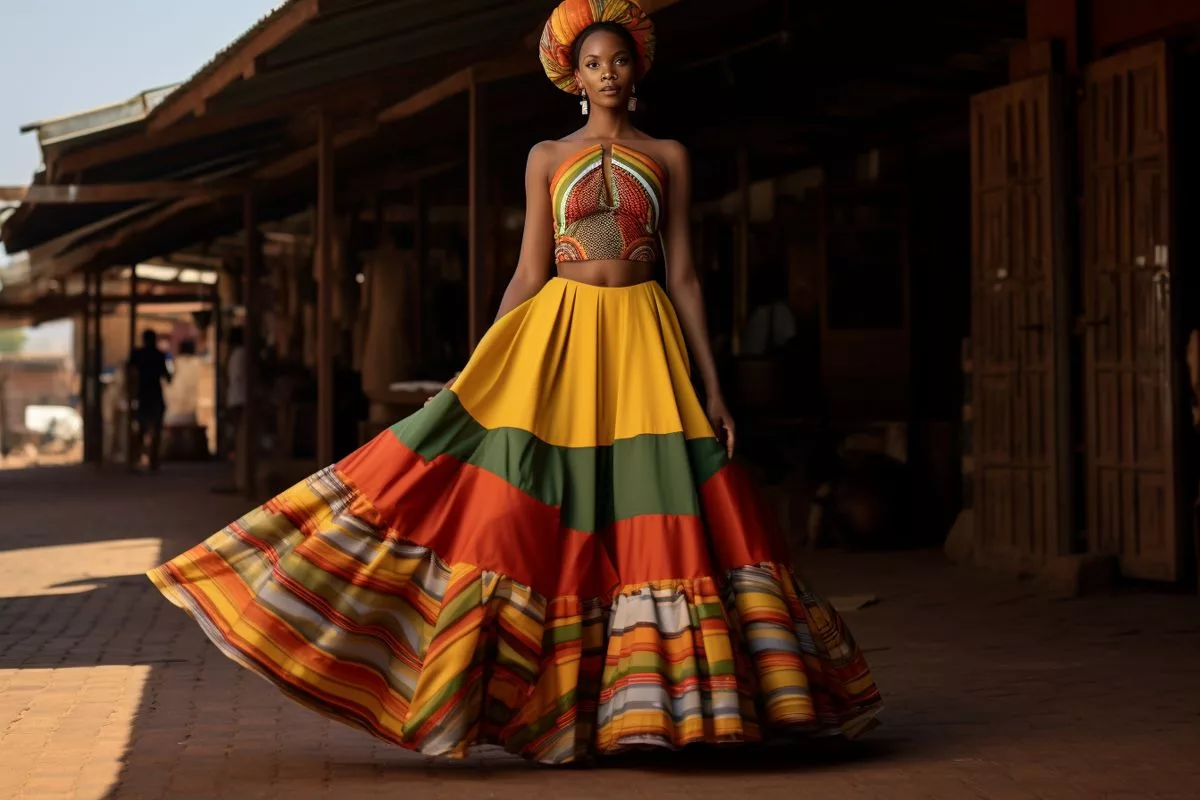The history and importance of football in Africa date back to the colonial era, and today the sport has become an integral part of African culture beyond just athletics. The African Football League has become a platform for thrilling matches, with the upcoming finals promising a record-breaking $4 million prize. Alongside football’s rise, the sports betting industry has emerged, contributing to the industry’s rapid growth and creating employment opportunities in over 16 African countries. The story of African football is one of victories, challenges, and evolution, promising more exciting moments in sports history.
Historical Significance of African Football: Football in Africa dates back to the colonial era when it was introduced by European colonialists. Today, the sport plays a critical role in African culture, with its popularity surpassing just athletic history. It has played a crucial role in the fight against apartheid, and its current popularity underscores its lasting cultural importance.
A Night to Remember
In the exhilarating late evening of November 1st, the Cairo International Stadium hosted a gripping match between Mamelodi Sundowns from South Africa and Egypt’s Al-Ahly. The second-leg match of the African Football League semifinal culminated in a 0-0 tie, but the deadlock was anything but boring. Ronwen Williams, the goalkeeper, emerged as the star of the evening, deflecting numerous shots with exceptional poise.
A noteworthy event revolved around Sphelele Mkhulise’s handball close to the 18-yard box. Following a detailed examination by the VAR, it was concluded that the handball took place outside the box. This influential verdict, paired with Thapelo Maseko’s goal from the first leg, sealed Sundowns’ 1-0 aggregate win. Their victory has carved the path to the two-legged final against Wydad Casablanca, esteemed adversaries from Morocco.
Road to the Semifinal
Wydad AC had previously secured their place in the semifinals by outclassing Nigeria’s Enyimba, while Sundowns demonstrated their dominance against Atlético Petróleos de Luanda from Angola in the quarterfinals. Certainly, the AFL semifinals put on display a fascinating blend of prominent clubs – Al Ahly of Egypt, Wydad Athletic Club of Morocco, Espérance de Tunis from Tunisia, and South Africa’s Mamelodi Sundowns. The excitement for the final is tangible, with the victorious team set to claim a record-breaking $4 million prize.
Historical Significance of African Football
Football’s journey and importance in Africa trace back to the colonial era. The game, extremely popular in Europe, was brought to Africa over a hundred years ago by colonialists from Britain, Belgium, France, and Portugal. Following the independence in the 1960s, club football flourished in several African countries. This birthed football leagues which saw clubs compete for the national champion title. The best talents from these leagues were selected to represent their countries, marking the beginning of the African Club Champions Cup.
Football’s profound influence in Africa goes beyond athletic history. The game played a crucial role in the fight against apartheid, and its current popularity underscores its lasting cultural importance. The 2010 World Cup, hosted by South Africa, was an iconic event with significant political, economic, and symbolic consequences. The occasion denoted South Africa’s emergence as a democratic and global nation, reconstructing the narrative surrounding South African football.
The Intersection of Football and Betting
Running parallel to the rise of football is the emergence of the sports betting industry. As in many parts of the world, betting has become a complex part of sports culture in Africa. Sports betting has been legalized, regulated, and controlled in over 16 African countries, making it safer and more reliable for betting enthusiasts.
This regulatory move has encouraged responsible gambling, created more employment opportunities, and increased the industry’s revenue. The introduction of strict regulations has also deterred dishonest operators. The advent of technology and the internet has revolutionized online sports betting platforms, simplifying the betting process and making it more accessible to Africans. These user-friendly platforms, armed with mobile apps and websites, have significantly contributed to the industry’s rapid growth.
The Narrative of African Football
The story of African football is a blend of victories, challenges, and evolution. From its historical significance in the fight against apartheid to the rise of football clubs and leagues, and the growth of the sports betting industry, the sport has become an inseparable part of the socio-cultural fabric of the continent. As the AFL finals draw near, the saga of African football persists, promising more thrilling matches, emerging talents, and moments that will resonate in the archives of sports history.
1. What is the historical significance of football in Africa?
Football in Africa traces back to the colonial era when it was introduced by European colonialists. Today, it plays a critical role in African culture, with its popularity surpassing just athletic history. It has played a crucial role in the fight against apartheid, and its current popularity underscores its lasting cultural importance.
2. What was the outcome of the African Football League semifinal match between Mamelodi Sundowns and Al-Ahly?
The second-leg match of the African Football League semifinal culminated in a 0-0 tie, but the deadlock was anything but boring. Ronwen Williams, the goalkeeper, emerged as the star of the evening, deflecting numerous shots with exceptional poise. Sundowns won the semifinal with a 1-0 aggregate win against Al-Ahly.
3. Who are the semifinalists of the African Football League?
The AFL semifinals featured prominent clubs such as Al Ahly of Egypt, Wydad Athletic Club of Morocco, Espérance de Tunis from Tunisia, and South Africa’s Mamelodi Sundowns.
4. What is the prize money for the African Football League finals?
The upcoming finals promise a record-breaking $4 million prize for the victorious team.
5. What is the intersection between football and betting in Africa?
The emergence of the sports betting industry has contributed to the rapid growth of the football industry in Africa. Sports betting has been legalized, regulated, and controlled in over 16 African countries, making it safer and more reliable for betting enthusiasts. This regulatory move has encouraged responsible gambling, created more employment opportunities, and increased the industry’s revenue.
6. What is the narrative of African football?
The story of African football is a blend of victories, challenges, and evolution. From its historical significance in the fight against apartheid to the rise of football clubs and leagues and the growth of the sports betting industry, the sport has become an inseparable part of the socio-cultural fabric of the continent. The saga of African football persists, promising more thrilling matches, emerging talents, and moments that will resonate in the archives of sports history.












